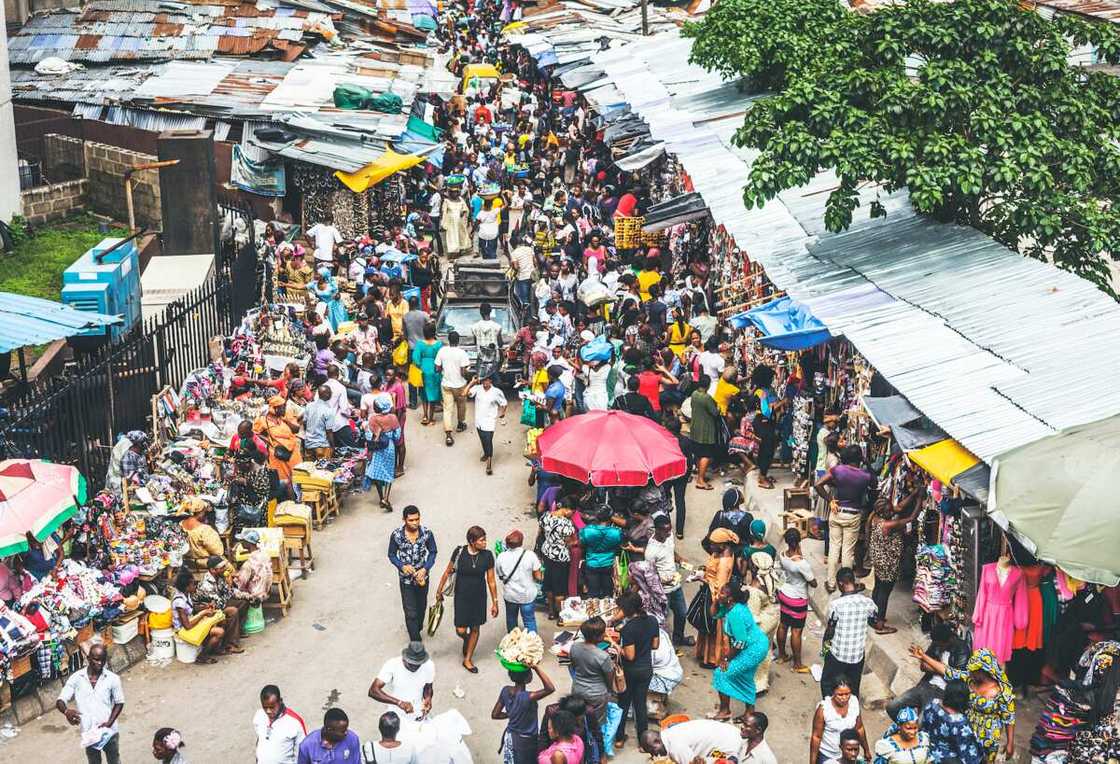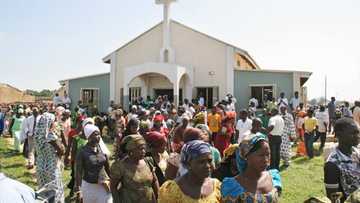Economists raise concerns about Nigerians' survival as inflation jumps to 11-month high, hits 17.71 per cent
- Nigeria's inflation has jumped to the highest level in 11 months leaving economists worry about what the future holds for the citizens
- The economist concerns are steaming from the fact that many companies and food vendors are all adjusting to the change in the price of goods and services
- Since the start of the Russian war against Ukraine, Nigerians have been battling with rising cost of goods and services
PAY ATTENTION: Click “See First” under the “Following” tab to see Legit.ng News on your Facebook News Feed!
On Wednesday, 16 June 2022, the National Bureau of Statistics announced that the inflation rate in Nigeria accelerated in May to its highest level in 11 months.
Inflation is the rate at which the value of a currency is falling and, consequently, the general level of prices for goods and services is rising according to Investopedia.
NBS noted that it increased to 17.71 per cent in May from 16.82 per cent in April, while food inflation rose to 19.50 per cent, the highest in eight months, compared to 18.37 per cent in the previous month.

Source: Getty Images
The ongoing Russia-Ukraine conflict and the displacement of farmers by herders and insurgents in Nigeria have been identified as major drivers of the uptick in the prices of food items.
PAY ATTENTION: Subscribe to Digital Talk newsletter to receive must-know business stories and succeed BIG!
The conflict has disrupted the supply chains of commodities such as wheat, sugar and vegetable oil.
This disruption has caused economists working in International Monetary Fund to raise concerns about food security in the country and Nigerians' survival.
Economists take on Nigeria's rising inflation
The IMF said on Wednesday that its team, led by its Chief economist Jesmin Rahman, held meetings with the Nigerian authorities from June 6-10, 2022, to discuss recent economic and financial developments and the economic outlook for the country.
Rahman, in a statement at the end of the visit, noted that discussion of food security, CBN interest rates, agriculture, and GDP growth were discussed.
Another economist, Bismarck Rewane and his team at Financial Derivatives Company Limited (FDC), also posit that commodity prices were increasing at a faster pace for food items than in the non-food basket.
The FDC analysts said in spite of the price surge, wages had remained static or even declined in real terms.
They said:
“Consequently, price resistance of consumers is increasing and many are switching to affordable substitutes. In some cases, as is empirically evident, we have noticed a drop in the quantity of goods demanded. Since price inflation is not a Nigeria specific phenomenon, there are indications that the price spiral is not likely to be short-lived.
“Nigeria faces a major food crisis as insecurity escalates. The Nigerian economy is now at the verge of a major food crisis as killings and kidnappings become the order of the day.”
Omobola Adu, an investment research analyst with Afrinvest Consulting also pointed out that the rising inflation means households will now have to lower discretionary expenses
Details of NBS report
Details from the NBS report Inflationary pressures were felt more in the urban areas of the country in May than in the rural areas.
It noted that the Urban inflation rate rose to 18.24 per cent in May as against 17.35 per cent in April, while rural inflation increased to 17.21 per cent from 16.32 per cent.
On food rising inflation the report reads:
“The rise in the food index was caused by increases in prices of bread and cereals, food products, potatoes, yam, and other tubers, wine, fish, meat, and oils."
The report also showed that when May inflation figure is compared to April food inflation was highest in Rivers (3.65%), Abia (3.31%), and Ogun (3.23%).
While Yobe (0.01%), Osun (0.76%), and Jigawa (0.81%) recorded the slowest rise on month-on-month inflation
Fuel scarcity drives up the price of diesel
Meanwhile, Legit.ng previously reported that fuel scarcity had driven up the price of diesel to N550 per litre.
Buyers interviewed by Legit lamented the ripple effect of the hike in petroleum products in the country.
Michael Agwu, a businessman told Legit.ng in Lagos that what the price increase means is that it will further drive up inflation in the country.
Source: Legit.ng






